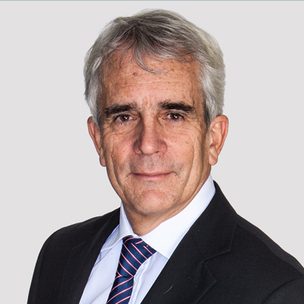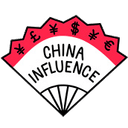Population dynamics
Populations are shifting significantly, with unprecedented ageing in mature economies and income growth driving changes in developing economies. This leads to differences in growth and fiscal burdens. ‘Population dynamics’ explores what shifts in demography mean for investors.
Financialisation
Cheap money has caused rapid growth in a sector already supported by deregulation. ‘Financialisation’ investigates the implications of finance dominating economic activity, instead of serving it.
Earth matters
Environmental factors are high up the political agenda and provide areas of opportunity as well as risk. Governments are under pressure to respond but this can be expensive, despite advancements in technology. ‘Earth matters’ looks at these issues.
Smart revolution
Machines and networks are becoming more intelligent. This is disrupting the labour market, as machines increasingly replace humans in the workplace. ‘Smart revolution’ considers the implications commercially, socially and politically.
Net effects
The world has made the transition from connecting places to connecting people to connecting devices. The rapid rise in the ‘internet of things’ is transforming lifestyles and business. This creates winners and losers – our ‘net effects’ theme seeks to identify them.
State intervention
Authorities have engaged in ever-greater policy intervention and regulation to shore up economic growth. We believe ‘state intervention’ has increased misallocation of capital, caused volatility in markets and inflated asset prices – and we think that calls for a stock-specific approach.
Healthy demand
The industry for health-care products and services is growing rapidly. Ageing populations are fuelling demand in developed economies, and increasing incomes and changing lifestyles are creating new markets in emerging economies. ‘Healthy demand’ looks at the opportunities and the risks.
China influence
The influence of China on the world has grown exponentially but its economy looks increasingly risky. ‘China influence’ looks at how the country’s development affects the investment outlook beyond its borders.1
1 Compared to more established economies, the value of investments in emerging markets may be subject to greater volatility owing to differences in generally accepted accounting principles or from economic or political instability or less developed market practices.
Consumer power
Technological advances are increasingly shifting the power to consumers in the marketplace. With the ability to compare prices and products independently now in the hands of the consumer, businesses must adapt to a changing commerce landscape, as their customers seek out better experiences, authenticity and value. Our ‘consumer power’ theme addresses these trends.
The Fund has four areas of focus
-

Companies that are tackling the most pressing social and environmental needs as identified in our sustainable taxonomy
-

Companies integrating the highest standards of sustainability into their business models
-

Companies that are explicitly committed to transform their business models for defined social or environmental benefits -

Actively omitting companies involved in areas of high social cost, environmental degradation, exploitative monopolies or violators of the UN Global Compact
-
The Fund does not invest in security issuers that:
– Breach the UN Global Compact
– Are incompatible with a 2-degree world
– Derive more than 10% of turnover from tobacco production and sale
– Are deemed to have material and unresolvable environmental, social and governance (ESG) issues
Investment team
The Newton Sustainable Growth and Income Fund for Charities is managed by a highly experienced team. Our global sector analysts and investment managers work as part of a single investment team, which promotes perspective on the investment landscape, strong idea generation and the swift implementation of investment ideas. Our dedicated responsible investment team is an integral part of the investment decision-making process. Guided by our global investment themes, the team works together to identify opportunities and risks through research and debate.
- 31
- years’ average investment experience
- 20
- years’ average time at Newton
-

Bhavin Shah
Portfolio manager, multi-asset team
-

Hilary Meades
Head of charities investment
-

Oliver Larminie
Portfolio manager, charities and specialist institutions
-

Simon Nichols
Portfolio manager, global opportunities team
-

Tim Wilson
Portfolio manager, multi-asset team
Strategy profile
-
Objective
-
To generate capital growth and income over the long term (5 years or more).
The Fund will measure its performance against a composite index, comprising 75% MSCI AC World NR Index, 20% FTSE Actuaries UK Conventional Gilts All Stocks TR Index and 5% LIBID GBP 7 Day, as a comparator benchmark (the ‘Benchmark’). The Fund will use the Benchmark as an appropriate comparator because it includes a broad representation of the asset classes, sectors and geographical areas in which the Fund predominantly invests. The Fund is actively managed, which means the Investment Manager has absolute discretion to invest outside the Benchmark subject to the investment objective and policies disclosed in the Prospectus. While the Fund’s holdings may include constituents of the Benchmark, the selection of investments and their weightings in the portfolio are not influenced by the Benchmark. The investment strategy does not restrict the extent to which the Investment Manager may deviate from the Benchmark. -
Literature
-
Application form
Prospectus
Interim report & accounts
Sterling Accumulation KIID
Sterling Income KIID
X Income KIID
Your capital may be at risk. The value of investments and the income from them can fall as well as rise and investors may not get back the original amount invested.
Tax treatment depends on the individual circumstances of each client and may be subject to change in the future. Newton is not a tax expert and independent tax advice should be sought.













